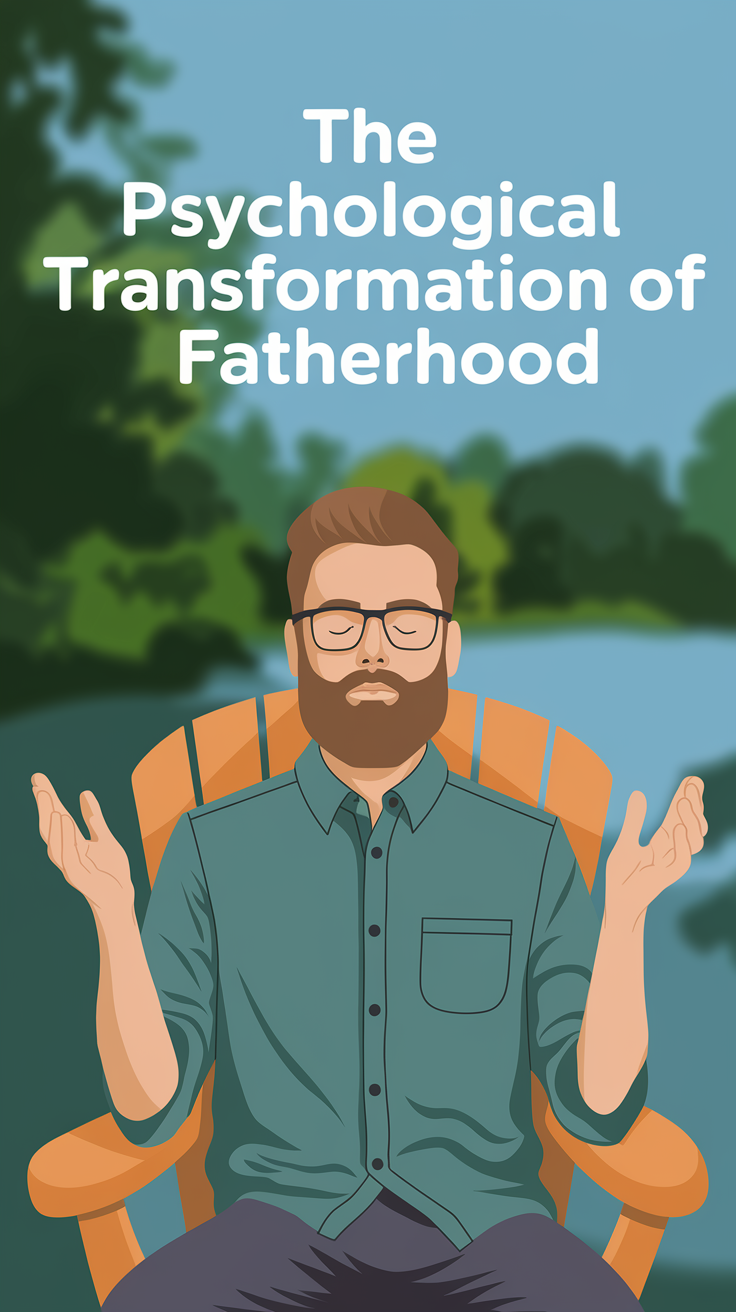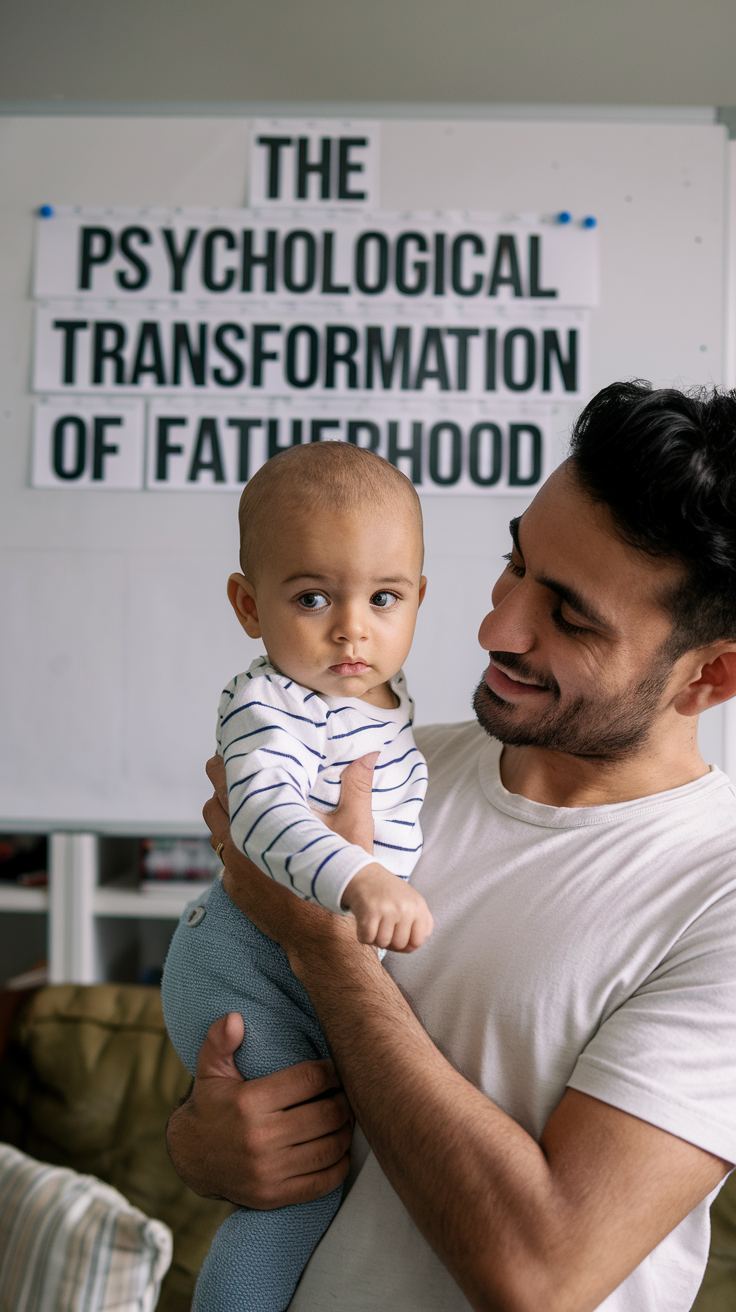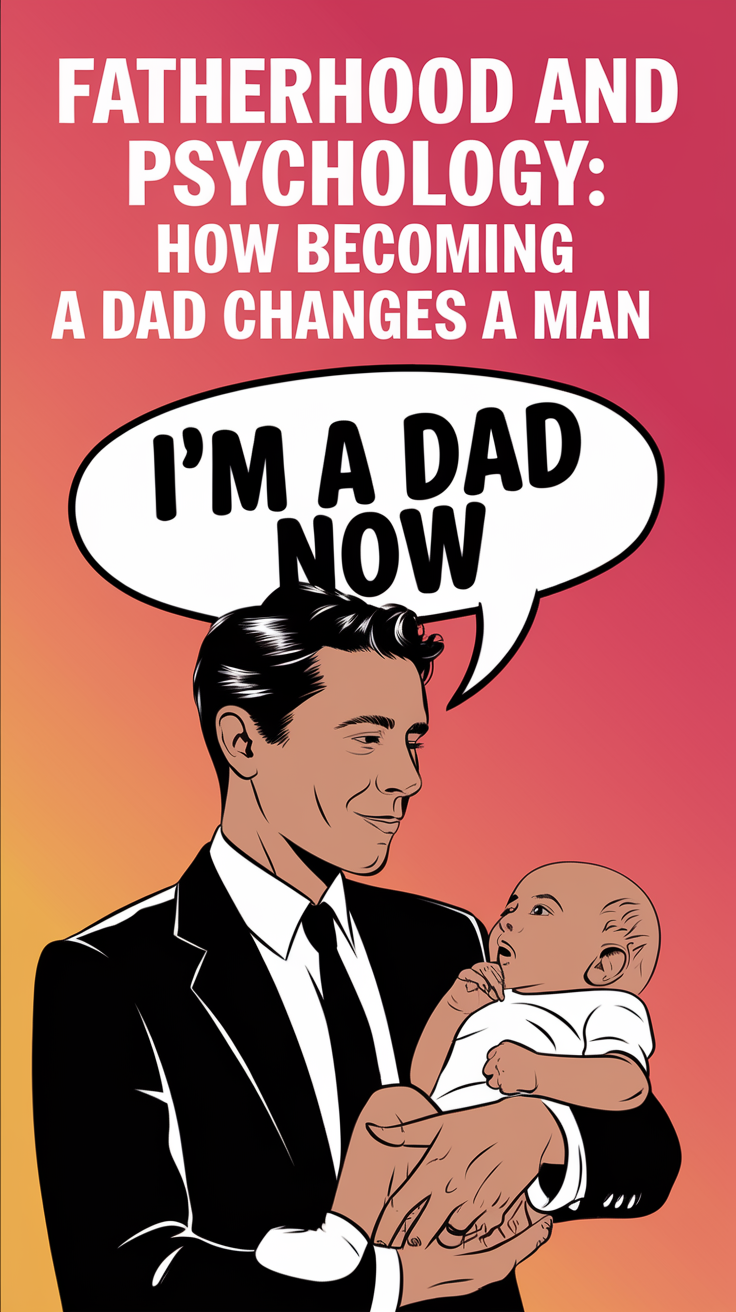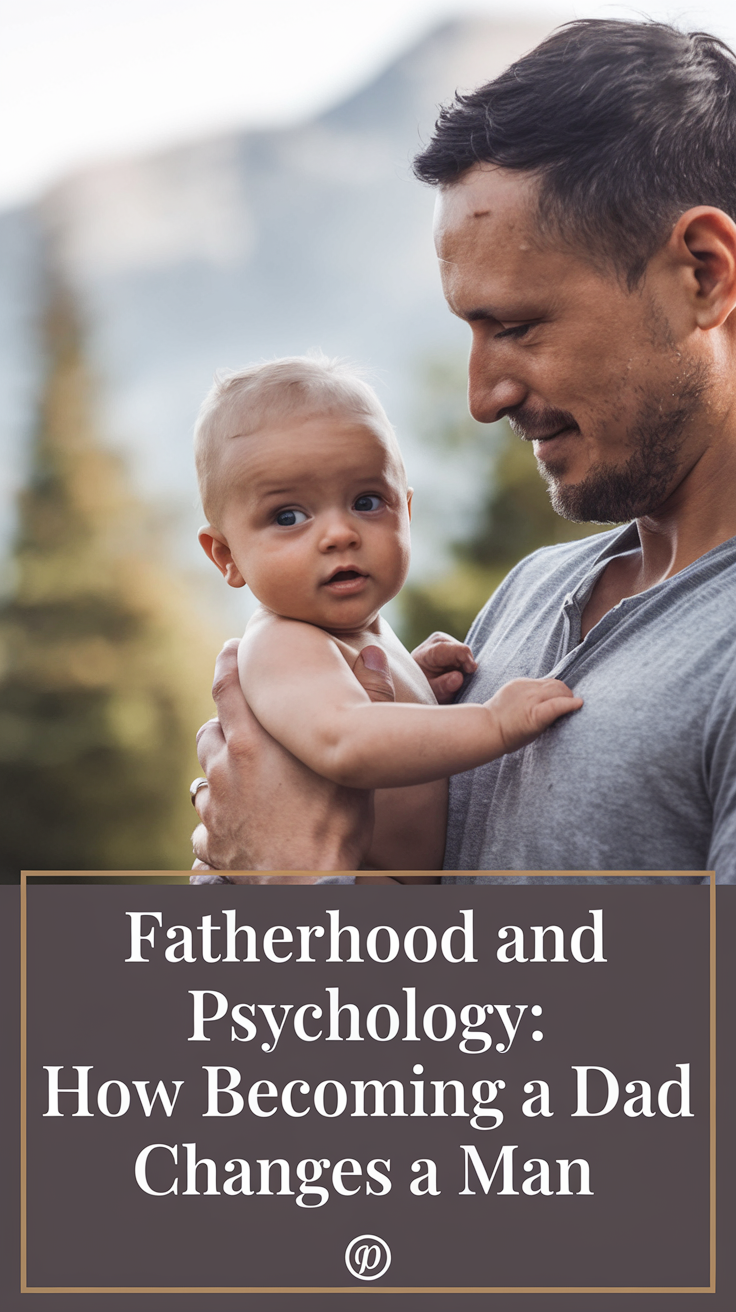Fatherhood and Psychology: How Becoming a Dad Changes a Man
Becoming a father is a transformative journey that reshapes not only a man’s identity but also his emotions, relationships, and even biology. This profound change is both personal and universal, offering a mix of challenges, growth, and rewards. Drawing from psychological studies, neuroscience, and real-life experiences, this article delves into how fatherhood changes men on multiple levels.
The Psychological Transformation of Fatherhood
Emotional Growth and Empathy
Fatherhood enhances emotional depth and empathy in ways many men might not expect. Engaging with a child opens new emotional channels, fostering a deeper understanding of vulnerability and compassion. This is backed by studies showing that fathers experience increased emotional sensitivity, helping them build stronger bonds with their children.

Additionally, the act of caregiving encourages fathers to tap into nurturing instincts traditionally associated with motherhood. For me, holding my baby for the first time was like flipping a switch—it was as though I could finally see the world through someone else’s eyes.
Key Takeaways:
- Fathers often report increased emotional intelligence and patience.
- Empathy towards others, not just their children, tends to grow.
- Emotional connections with children often redefine how men view success and happiness.
Identity and Responsibility
Becoming a father prompts a redefinition of self. The shift from focusing primarily on personal goals to prioritizing family responsibilities is life-changing. This newfound sense of purpose aligns a man’s decisions with the well-being of his family.
Fathers often describe this as a grounding experience, one that forces them to think long-term. I found myself reevaluating my career choices, finances, and even my hobbies to create a stable foundation for my child.
Key Takeaways:
- Many fathers develop a stronger sense of purpose and accountability.
- Personal identity expands to include “provider” and “role model.”
- Sacrifices often feel less like burdens and more like meaningful investments.
The Biological Changes of Fatherhood
Hormonal Adjustments
Fatherhood isn’t just an emotional journey; it’s a biological one. The hormonal changes men experience are significant and impactful:
- Testosterone Decrease: Testosterone levels often drop after a baby is born, which may help fathers focus more on caregiving and less on aggressive or risk-taking behaviors.
- Oxytocin Surge: Known as the “bonding hormone,” oxytocin increases in fathers, enhancing feelings of love and attachment.
- Prolactin and Cortisol: Prolactin (commonly associated with lactation) rises in fathers, encouraging nurturing behavior, while cortisol can enhance alertness and responsiveness to the baby.
For me, these hormonal changes weren’t something I could see, but I could feel them. There was a palpable shift in how I approached my family and life overall.

Neural Adaptations
Fatherhood also leads to structural changes in the brain. Neuroscience reveals that:
- Gray matter reduces in certain areas, potentially making the brain more efficient in handling parenting tasks.
- Connectivity increases in regions associated with empathy, decision-making, and social cognition.
These neural adaptations make fathers more attuned to their children’s needs, reinforcing the bond between father and child.
Societal and Cultural Influences on Fatherhood
The Role of Cultural Expectations
Society and culture shape how men experience fatherhood. In some cultures, fathers are expected to be primary providers, while in others, they are deeply involved in daily caregiving.
Understanding these expectations can help fathers navigate the pressures and joys of parenthood more effectively. For example, modern Western cultures increasingly celebrate hands-on fathering, encouraging men to actively engage in everything from diaper changes to emotional support.
The Impact of Fatherhood on Relationships
Strengthening Marital Bonds
Fatherhood can deepen the connection between partners, but it also tests the relationship. Clear communication, shared responsibilities, and mutual support are essential for navigating this new dynamic.
Practical Tips:
- Schedule regular check-ins with your partner to align parenting strategies.
- Celebrate small wins as a team, such as getting the baby to sleep through the night.
Expanding Social Connections
Fatherhood often shifts a man’s social circle. Old friendships might take a backseat, while new connections—like other fathers—become a lifeline. For me, joining a parenting group gave me valuable advice and camaraderie.
Work-Life Balance and Career Changes

Fatherhood forces men to rethink their professional lives. Balancing career ambitions with family needs requires time management and flexibility. Workplace policies like paternity leave can make this transition smoother, but not all fathers have access to these benefits.
Key Strategies:
- Advocate for family-friendly policies at work.
- Set clear boundaries to protect family time.
- Explore flexible work arrangements when possible.
Navigating Challenges and Embracing Growth
Mental Health Awareness
Fathers, like mothers, are susceptible to postpartum depression and anxiety. Recognizing these feelings and seeking help is vital for personal well-being and family health.
Balancing Personal and Parental Identity
It’s crucial for fathers to maintain their individuality while embracing parenthood. Hobbies, friendships, and personal goals shouldn’t be abandoned but rather integrated into the new family dynamic.
The Long-Term Effects of Fatherhood
Fatherhood isn’t just about the early years; it’s a lifelong journey. As children grow, so do fathers, evolving in response to new challenges and milestones. Whether it’s helping with homework or walking a daughter down the aisle, fatherhood continues to shape a man’s emotional and psychological world.
Conclusion
Fatherhood is a journey of profound transformation. From emotional and biological changes to shifts in identity and relationships, becoming a dad reshapes a man’s life in ways that are both challenging and rewarding. Embracing these changes with curiosity and openness can lead to unparalleled personal growth.
For those stepping into fatherhood, my advice is simple: be patient with yourself, stay connected with your support network, and cherish every moment—it truly flies by.
FAQs
1. What are the biggest psychological changes men experience when becoming fathers?
Increased empathy, emotional intelligence, and a stronger sense of responsibility are some of the key changes.
2. Do fathers experience postpartum depression?
Yes, fathers can experience postpartum depression, often triggered by sleep deprivation, hormonal shifts, or feelings of inadequacy.
3. How can fathers bond with their newborns?
Fathers can bond by engaging in caregiving tasks, spending quality time, and maintaining physical closeness through activities like skin-to-skin contact.
4. How does fatherhood affect a man’s career?
Fatherhood often prompts men to prioritize work-life balance, advocate for family-friendly policies, or even switch careers to better align with family needs.
5. Are the brain changes in fathers permanent?
Some changes, like increased connectivity in empathy-related areas, may last long-term, while others may adjust as the child grows.
6. How can fathers navigate societal expectations?
Fathers can challenge stereotypes by embracing a more hands-on role and seeking support from communities that value active fathering.






